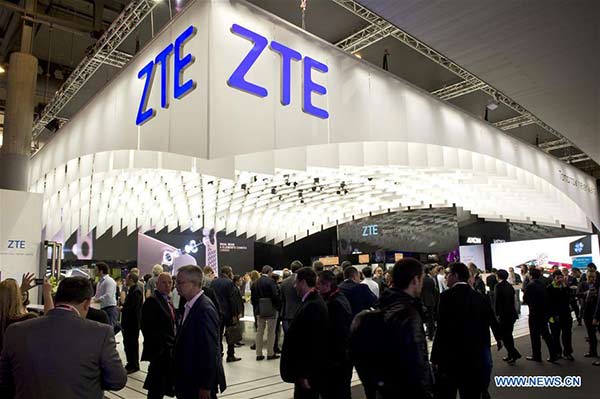The denial order the United States Commerce Department activated against ZTE on Monday may prove fatal to the Chinese telecommunications company. But the impact of the decision may go beyond the fate of an individual company in the context of the ongoing trade spat and economic competition between the US and China.

The ZTE case in itself is hardly complex. The company admitted violating US sanctions against Iran and the Democratic People’s Republic of Korea in March 2017 by shipping telecommunications equipment to them.
Aside from agreeing to pay $1.19 billion in fines and to punish the employees involved, it accepted a seven-year suspended denial of export privileges, which was to be activated if there was any new violation or breach of the agreement.
The US Commerce Department has now activated that denial order prohibiting US companies from selling, exporting or re-exporting components, software and technology to ZTE, as it claims the Chinese company broke the agreement by not disciplining its employees as agreed.
Considering the company’s heavy reliance on US products and technologies, the otherwise robust ZTE now faces an existential crisis. Many of its suppliers, including those in the US, will also suffer.
Announcing the decision, the US Commerce Department stated it is “a regulatory action” “unrelated to any ongoing trade-related actions”. It is to be hoped that this is indeed the case. If this is Washington’s reply to Beijing’s recent pledge of greater openness, it cannot but worsen trade relations and press Beijing to roll back what it was ready to offer.
While the overall response at home among industry insiders is the belief that the decision has been timed to enhance the US’ position at the bargaining table in their trade dispute, there is also a consensus that Chinese companies need to develop their own core technologies rather than rely on US suppliers. And there is an assumption that the decision is related to the rivalry between the two countries now that China is competing in the high-tech field rather than just low-end manufacturing.
China’s Ministry of Commerce is right to raise concerns that the ZTE move is symptomatic of Chinese companies not competing in a fair and equitable legal and policy environment, as the action comes when the US has been increasing the pressure on Chinese telecommunications companies as part of its restrictions on Chinese investment and acquisitions in high-tech sectors.
It is understandable that the US seeks to maintain its advantages, but economic issues should not be politicized as a means to curb competition. This should be about the conduct of ZTE, it should not be exploited to denigrate other Chinese companies.
Visitors walk in front of the ZTE stand at the Mobile World Congress 2016 in Barcelona, Spain, Feb 22, 2016. (Photo/Xinhua)


